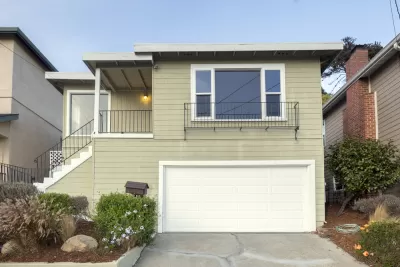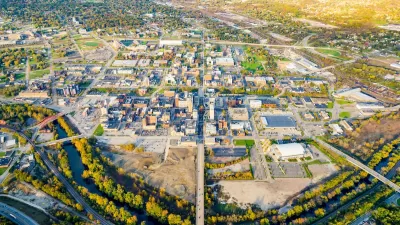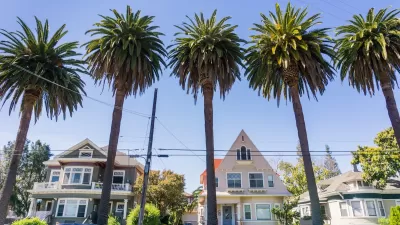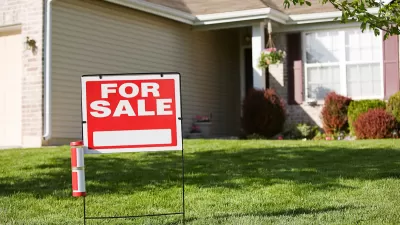As prices rise, especially in desirable urban markets, what used to be called "starter homes" rarely come up for sale. And when they do, they go for more than first time home-buyers can afford.

The old consensus held that socially-mobile families began their home-owning years with a modest "starter home," providing a base to upgrade to better digs later in life. However, Emily Badger writes, "According to Trulia chief economist Ralph McLaughlin, the number of starter homes on the market in the 100 largest U.S. metros has dropped by about 44 percent since 2012."
The housing crash bears some of the responsibility for the declining number of starter homes. Investors saw many foreclosed starter homes as good rental opportunities, taking them essentially off the market. And buyers in over their heads have been stuck in their purchases, making payments. But the broader affordability crisis is also taking a great toll.
From the article: "In markets like Oakland, Portland and Washington, the prices for high-end homes are rapidly rising — the rungs of the ladder are moving further apart — and that makes it harder for people who own mid-tier homes to trade up. And when they get stuck, people who own starter homes have a harder time trading up, too." In effect, while urban residents may be socially mobile, they're constrained by a housing market that is forever out-of-reach.
FULL STORY: Why it seems impossible to buy your first home

Maui's Vacation Rental Debate Turns Ugly
Verbal attacks, misinformation campaigns and fistfights plague a high-stakes debate to convert thousands of vacation rentals into long-term housing.

Planetizen Federal Action Tracker
A weekly monitor of how Trump’s orders and actions are impacting planners and planning in America.

In Urban Planning, AI Prompting Could be the New Design Thinking
Creativity has long been key to great urban design. What if we see AI as our new creative partner?

King County Supportive Housing Program Offers Hope for Unhoused Residents
The county is taking a ‘Housing First’ approach that prioritizes getting people into housing, then offering wraparound supportive services.

Researchers Use AI to Get Clearer Picture of US Housing
Analysts are using artificial intelligence to supercharge their research by allowing them to comb through data faster. Though these AI tools can be error prone, they save time and housing researchers are optimistic about the future.

Making Shared Micromobility More Inclusive
Cities and shared mobility system operators can do more to include people with disabilities in planning and operations, per a new report.
Urban Design for Planners 1: Software Tools
This six-course series explores essential urban design concepts using open source software and equips planners with the tools they need to participate fully in the urban design process.
Planning for Universal Design
Learn the tools for implementing Universal Design in planning regulations.
planning NEXT
Appalachian Highlands Housing Partners
Mpact (founded as Rail~Volution)
City of Camden Redevelopment Agency
City of Astoria
City of Portland
City of Laramie





























